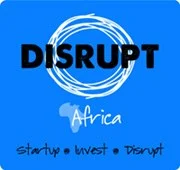#InnovationMonth: Time for investors to focus on SA healthtech, not fintech - Havaic

Interest in South Africa’s fintech sector has escalated – rightfully so – Heath says, driven by the world class financial services and innovation on offer in the country.
The rise of blockchain technologies, widespread adoption of cheap smartphones, and stronger encryption methods have opened the local financial sector for disruption, and South African innovators have responded to this, he says.
However, while investor interest has concentrated mostly on fintech, the healthtech sector is being largely ignored, whereas these same trends also mean the health sector is primed for tech-fuelled innovation.
“Why doesn’t healthtech create the same buzz? Not sexy enough?” Heath says.
“Looking at South Africa’s healthcare environment, we have world class doctors, surgeons, researchers and medical institutions, and the technologies of blockchain, encryption and widespread smartphone adoption could be utilised in the healthcare environment to the same leveraging effect as in the financial sector.”
As such, Havaic has identified healthtech as a strategic target sector for investment – and is in the process of closing on three South African healthtech investments – and encourages more investors to look to the e-health space.
Having recently hosted a seminar on South African healthcare, Havaic said discussions with entrepreneurs, legal experts, investors, health sector experts and consultants have enabled the organisation to distill four niche areas ripe for disruption.
The first focal area identified is improving communication – particularly via mobile – between patients and their doctors, as well as between healthcare practitioners.
The second area is diagnostic support – the utilisation of technologies to assist in diagnosis.
Innovation should also focus on the consumerisation of healthcare, ensuring patients are informed, increasing transparency and choice, as well as creating the ability to individually monitor patients and access personalised health records.
Finally, the regulatory environment is in need of disruption, in particular around PoPI (Protection of Personal Information), compliance, potential liabilities of new technologies, and the use of data and underwriting implications.
Source: Disrupt Africa

Disrupt Africa is a one-stop-shop for all news, information and commentary pertaining to the continent’s tech startup – and investment – ecosystem. With journalists roaming the continent to find, meet, and interview the most innovative and disruptive tech startups, Disrupt Africa is a true showcase of Africa’s most promising businesses and business ideas.
Our readers can keep up-to-date with the quirky world of tech hubs and accelerator programmes; and our reporters provide live coverage of the all-important tech and entrepreneurship events across Africa.
For our startup, entrepreneur, and investor friends alike, our mission is to provide practical information and advice from across Africa’s varied vibrant markets, and to promote engaged and thought-provoking discussion about the exciting ecosystem we belong to.
Go to: http://disrupt-africa.com/


























